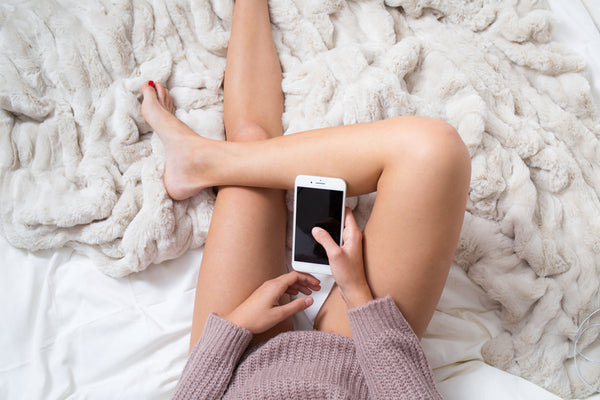Girl Code: Do You Share Your Passwords with Your Partner?

Once, I dated this guy. I was on the fence about him after a few weeks, and then he did the thing that pushed me over the edge. While I went to the bathroom, I left my phone on his coffee table. About ten minutes after I came back, my phone started dinging its familiar Facebook comment ding. I looked at my screen which was filling with comments from my friends and (gulp), my sweet, very Italian and proper aunt. I opened my phone as Suitor X was laughing his ass off.
While I was in the bathroom, he posted a very blue and inappropriate post on my Facebook account as me. While I love a good prank, something irked in the back of my mind. My phone was locked when I left. My passcode is not 1-2-3-4. I had left my phone on tables for weeks prior (falsely believing it communicated trust). He had, at some point, watched me enter my code and memorized it.
It was at that moment I was done. I felt violated. So, I said my goodbyes soon after. I wasn’t into him anyway, and his breach told me what I needed to know. He’d secretly hoisted my phone code and I couldn’t trust him.
I have to wonder: Is sharing passwords a litmus test for our relationships? If you believe it is, you are like over half the people in relationships that think sharing a password is romantic. It implies trust and commitment.
Or does it?
Does it say you don’t trust your partner unless you can go totally 1984 on them? And is that really trust?
A study out of the UK showed that partners are indeed snooping in their partner’s phone. Surprisingly, 34% of women and 62% of men copped to snooping on the DL. The reason for the snooping? The age-old “I thought he/she was cheating so I checked” quandary was the identified cause. In nearly half the cases their suspicions proved correct. But that means in more of the cases it didn’t.
So why are we obsessed with getting the passwords and fingerprint access for our partners? It comes down to pure insecurity. Sorry. It’s that simple.
So, let’s make up a code, shall we?
- You absolutely have the right to your privacy in a relationship.
- You can say no to a request from your partner for passcodes without guilt. But expect the same answer in return and give the same respect you want should you ask for it.
- Snooping begets sneakiness.
- Finally—If you don’t trust him or her, should you be in a relationship? It’s time to have a talk like grownups.
- If you are the asking party, ask yourself why you need it. Is it because someone did you wrong, you watched your parents do this tussle, or you simply can’t believe your lover wants to be with you? All of these are your issue—look inward and see someone. If you don’t trust your other half or have suspicions, see #4.
Now, sometimes having passcodes and passwords is more convenient for your life and if they are freely given, no worries. Sharing pics and calendars, Amazon Prime memberships, and Netflix sharing that must be done in the healthiest relationships. It’s when it becomes an issue in a relationship and suspicions start that make it an unhealthy behavior. But as always, think about the situation, flip the script, and then act in your best interest.
0 comments